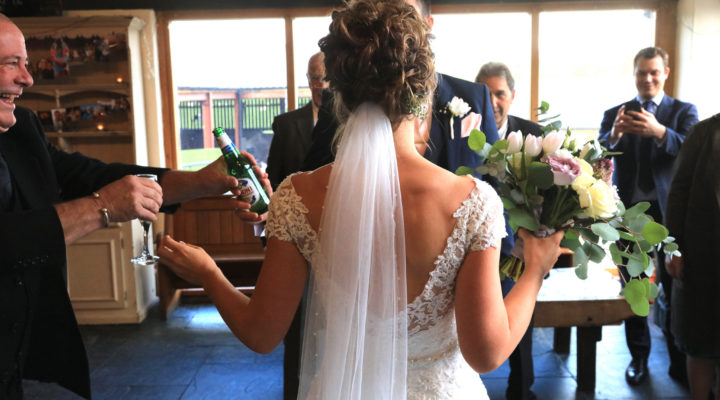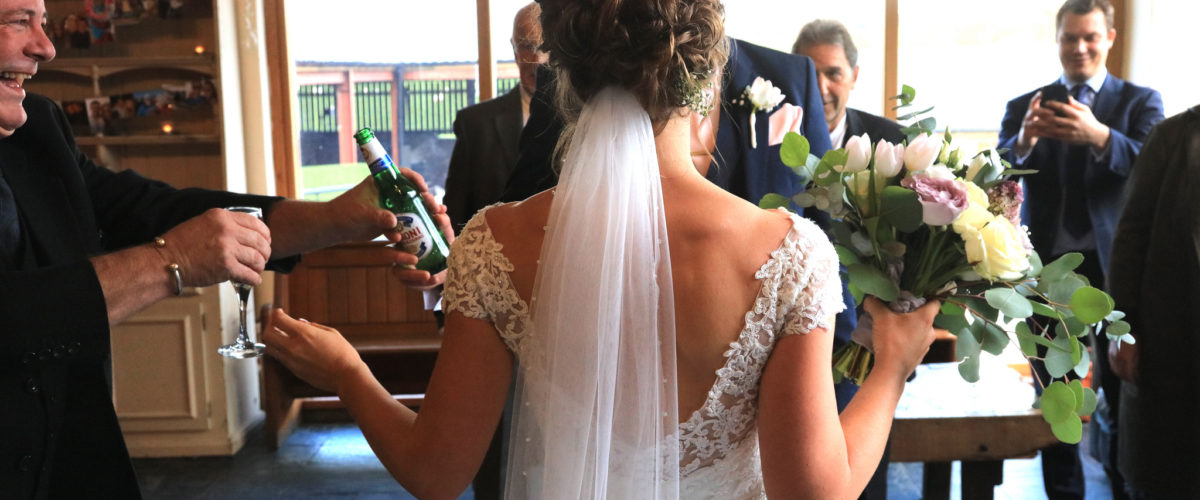Millennials and other religiously unaffiliated Americans are eschewing clergy involvement in their weddings.
At least that’s what some statistics and concerned ministers say.
The Knot reported that friend-officiated weddings increased from 29 percent in 2009 to 40 percent six years later.
Rabbi Jeffrey Salkin, an opinion writer for Religion News Service, lamented the trend in a recent column.
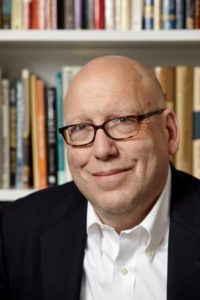
Jeffrey Salkin
“I worry about what happens when we willingly jettison traditions at the most sacred and sensitive moments of life – especially when those traditions speak so forcefully and so poetically to the human condition,” Salkin wrote in “What ever happened to clergy performing weddings?”
It’s hard to find a minister who hasn’t seen these trends play out in his or her setting.
And while most of them acknowledge the numbers are challenging, not all agree that it’s a bad thing that so many couples are choosing notaries, justices of the peace, family members and BFFs with internet ordinations to officiate their unions.
Instead, some minsters say there are a lot of potential positives.
“We are at this crossroad where clergy aren’t being asked to do sacred covenant moments, such as marriage,” said Erica Whitaker, the senior pastor at Buechel Park Baptist Church in Louisville, Kentucky.
“But I think we are coming to a peak where the culture will swing back to it.”
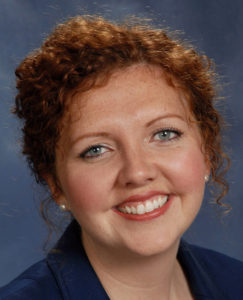
Whitaker said she has attended and officiated weddings of non-churchgoers who are earnestly striving to include elements of the sacred in their ceremonies.
“It’s a longing for another dimension of being in community, and that’s what the sacred offers,” she said.
“The culture is not using this language – ‘the sacred’ – but they are using language about being in community and creating powerful, intimate moments that the church used to offer.”
‘Experiencing the holy’
The movement away from clergy- and sanctuary-based weddings isn’t something to be lamented, but to be built upon by the church, said Chris Aho, the pastor at Oxford Baptist Church in Oxford, North Carolina.
It means being available and flexible for those who do seek ministers for weddings, even if they are in locations other than churches.
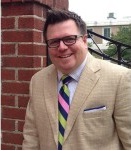
Chris Aho
And those numbers also are on the rise, according to The Knot: only 26 percent of weddings were held in religious institutions in 2017, compared to 41 percent in 2009.
“I think we adapt,” Aho said. “We use the skills we have as humans and as ministers to help bring about holy experiences for people who are seeking that.”
Aho said he accepts invitations to officiate non-church weddings despite firmly believing the most sacred wedding experiences occur among communities of faith.
“I do not turn down many weddings, even if they are non-members, because it’s a holy experience for them,” Aho said. “And if they are asking for a minister to be involved in that sacred moment, I want to provide that for them.”
Friend-officiated services are capable of being meaningful as well, he said.
“Holiness is not something ministers corner the market on.”
‘Weddings as legal ceremonies’
A more fundamental issue is why ministers are acting as agents of the state in officiating weddings in the first place, said Brett Younger, the senior minister at Plymouth Church in Brooklyn, New York.
Younger said clergy should not be signing legal documents as representatives of the state.
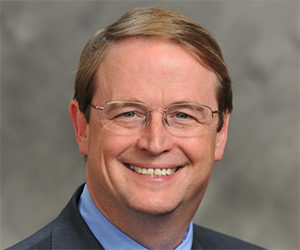
Brett Younger
“That’s an unholy alliance,” Younger said. “It treats weddings like legal ceremonies.”
A better approach may be to have justice-of-the-peace ceremonies which can be followed by worship services in which marriages are celebrated in the context of faith.
“The wedding is all about you, but the worship service, well, that’s different.”
Otherwise, Younger said, weddings and marriages are grounded in the couple and not in God.
But the trend away from faith-centered weddings is as much an opportunity for churches as it is a challenge, Younger added.
“Just as the rise of the secular culture is an opportunity for the church to be more serious about its calling, the secularization of weddings is an opportunity to offer a different kind of marriage to couples making a conscious decision to give their lives to God,” he said.
The experience may even provide an experience of marriage “in a way that may not have happened when it was routine 40 years ago,” he said.
Whitaker said she senses that is already happening and will continue as couples seek the sacred in their unions and as the church creates space for them to find it.
“I believe – I am hopeful – that the church wedding will become more popular,” she said.

